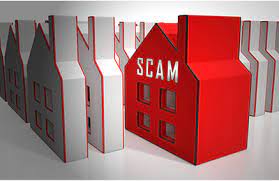By: D. Scott Murphy, SRA
Originally Written March 2008, Edited for Relevance March 2023
Mortgage Fraud has once again risen to elevated levels in many parts of the country, and there are virtually no areas of the country that are not affected to some degree. It is no different in many respects from any other felonious crime. In fact, many of the key players in mortgage fraud are convicted felons who were found guilty of far more egregious crimes. The lure of mortgage fraud is the low risk and high reward.
What is mortgage fraud? Well, this is part of the reason there is low risk involved with this crime. Until just 2005, there was no clear definition nor, more importantly, any clear legislation making it a specific crime. Mortgage fraud is any activity which defrauds or attempts to defraud a lender or individual in a mortgage transaction. Mortgage fraud has always existed: from the borrower who claims they will owner-occupy the home and does not, to the more seasoned criminal who makes false statements in their loan application. The problem was that prosecutors were left grasping for charges such as mail fraud, wire fraud and a variety of miscellaneous charges. In 2005, Georgia introduced the first Mortgage Fraud statute, which made it illegal to commit or attempt to commit acts of mortgage fraud. Many states have followed suit or are in the process of enacting similar legislation.
There are dozens of known mortgage fraud schemes. Most involve the following players: the facilitator, the straw buyer, an appraiser, an attorney and oftentimes a loan officer, processor, and underwriter. The facilitator is the orchestrator of the fraud scheme. This person is the one who will ultimately reap the greatest reward. They are also the one who is commonly not identified throughout the process. The Facilitator solicits a straw buyer, who is someone who willingly (generally for a fee) or unwillingly (generally through identity theft) acts as the prospective buyer. This straw buyer is often an out-of-town “investor” who is being told of all the money they can make in this particular market. They are typically given an inflated appraisal of the subject property to substantiate the massive gain.
This is where the appraiser enters the scene. The facilitator often has an appraiser involved with his scheme who will provide an inflated appraisal. The appraiser is often paid an inflated fee or promised a large amount of future work in exchange for a predetermined and inflated estimate of market value. The appraiser is able to provide this inflated value based on the use of superior comparables, other fraudulent sales or by simply making up sales to support this value.
The facilitator needs one other player to pull off this typical scheme: the closing attorney. The closing attorney will prepare the closing documents as to cover the fraudulent distribution of money. Unfortunately, it has become all too easy for the fraudsters to pull off their scheme without an inside appraiser and attorney. You will recognize the facilitator as the one who appears to have no connection to the transaction. They are not the buyer, seller, or real estate agent. They are the one who wants to be there for the appraisal. They are the one who delivers the loan documents. They are the intermediary between the buyer and the rest of the transaction often stating, “The buyer is from (far away state) and I am the local contact”. That total control of the transaction is necessary in order to ensure that everything goes as planned. There is also almost always an extreme sense of urgency. The faster the process goes, the greater the likelihood that even the unsuspecting appraiser and attorney will make a mistake and this transaction will successfully slip through detection as fraud.
Often the facilitator will have to take the deal to numerous lenders or appraisers. Our firm had one such transaction come in recently. The purchase price was $1,500,000. The property had sold just ten months prior for $850,000, so we expected to be wowed by some extensive renovations. We were instructed to contact Mr. X, who was not the buyer, seller or either of the agents. He met us at the property and was very nervous. He was eager to offer numerous comparable sales in an attempt to influence our opinion of value. Our estimate of value was about $900,000 due to some minor repairs and modest appreciation. You would think any honest agent involved in a legitimate purchase with such a discrepancy in value would have raised alarm, but no objections were raised. Instead, I heard nothing for a week until we received an order from another lender to appraise the very same property for the very same cast of characters. Of course it was a “super rush” – the appraisal was needed within two days. You see, they will go from lender to lender until they get a lender and an appraiser to comply. They are often able to choose the closing attorney, if not, they will create fictitious mortgages or other items to be paid at closing to siphon off the profit.
If anything smells fishy in a transaction, SAY SOMETHING. Ask your supervisor, ask a team leader, ask a friend, or email me at dsmurphy@dsmurphy.com. I am happy to look over any details that might appear suspicious. We just caught another case last week! Mortgage Fraud is still out there. Stay vigilant!

